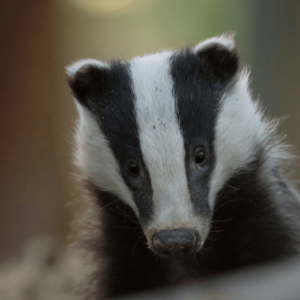This may not have been playing heavily on your mind, but we’ve been approached by several people who read on Aviva’s website about the controversy relating to bTB in badgers, and whether it can be passed onto humans.
What are my chances of catching bTB from a badger?
Because these animals mostly explore when we’re all asleep, and only 15% of badgers are actually infected, the chances of a human actually catching bTB directly from a badger are slim. The disease can be transmitted in raw cows’ milk, but pasteurization prevents this. Because all milk is now pasteurized, and cows are regularly tested and culled immediately if infected, it wouldn’t be easy to catch the disease via cows either.

What can you catch from your cute and fluffy friends?
There are 39 important diseases you can catch directly from animals, including:
Psittacosis
You can catch psittacosis by breathing in dust from dried droppings of infected birds. This disease is commonly known as parrot fever.
Brucellosis
Transfers to humans simply by drinking milk of a contaminated goat or cow.
Cat Scratch disease
This spreads to humans by a scratch or bite.
Cryptosporidiosis
Passed onto humans by coming into contact with dog, cat or farm animal waste, of an infected animal.
Mad cow disease
A neurological disorder humans can catch from eating contaminated beef. The disease can be fatal and symptoms include memory loss, hallucinations and personality change.
Hookworm
This is a small parasite that lives in the intestine of infected cats and dogs which can be passed onto humans by bite.
Rabies
Found in dogs, foxes, bats and skunks and can be passed onto humans by coming into contact with the salvia of the infected animal.
Toxoplasmosis
Humans contract this disease when coming into contact with cat faeces.
Escherichia Coli
This is a bacterium that causes a serious illness and people usually get the disease by eating contaminated meat, but when humans come into contact with manure they can also pick up the infection.
Foot and mouth disease
This can be found in: cattle, sheep, pigs, goats, some wild animals.
Worried about getting ill? We can’t protect you from badgers, but we can advise you on the best ways to protect your & your family’s health and income. Give us a call on 0844 809 4897, or send an enquiry.
Sources:
http://www.wildlifetrusts.org/badger-qa
http://www.thecattlesite.com/diseaseinfo/185/tb-bovine-tuberculosis/
http://www.cbsnews.com/pictures/10-scary-diseases-pets-give-people/10/


